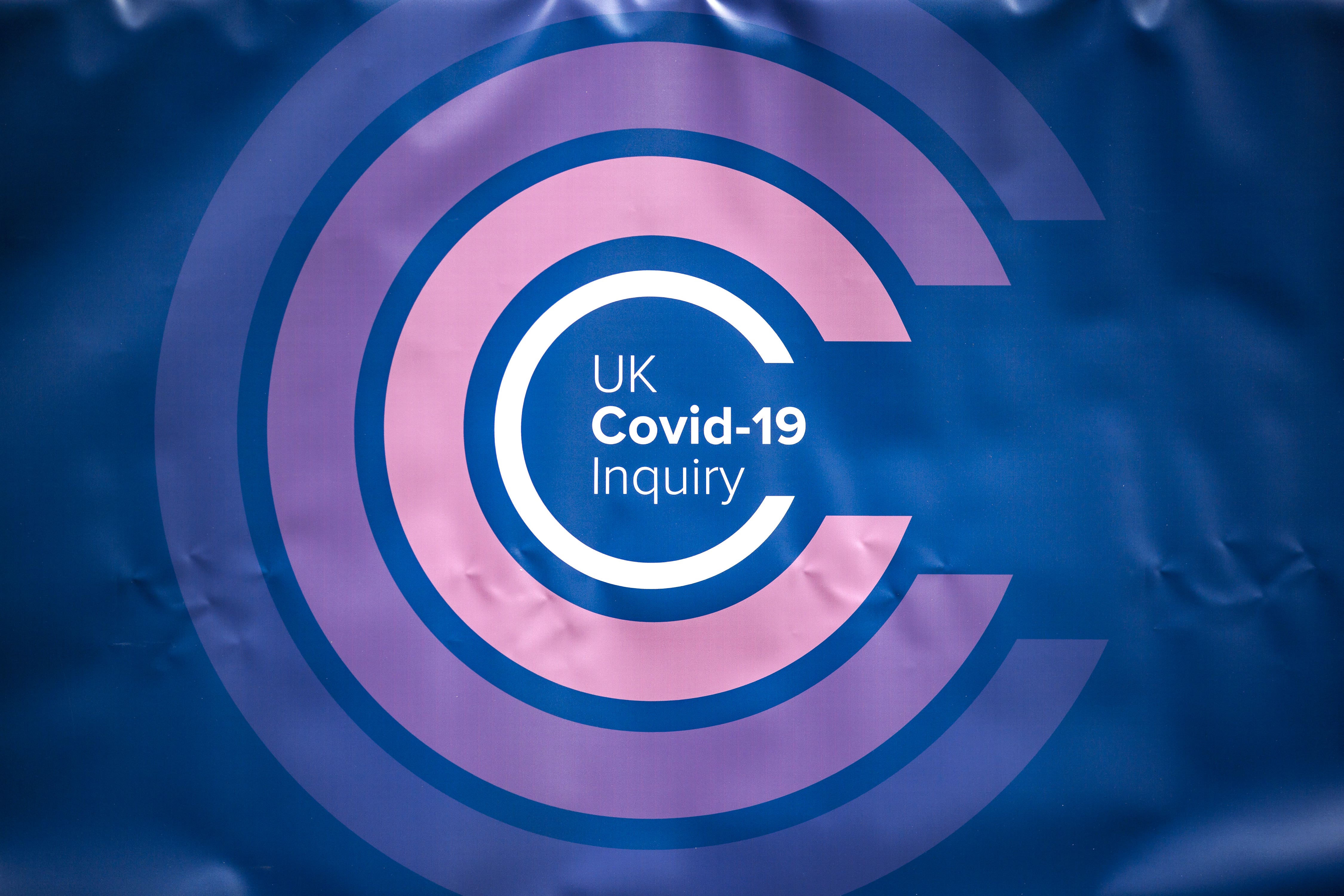Covid inquiry hears of tensions over daily death figures in Northern Ireland
The inquiry heard that Health Minister Robin Swann had taken a ‘personal interest’ in the supply of figures.

Your support helps us to tell the story
From reproductive rights to climate change to Big Tech, The Independent is on the ground when the story is developing. Whether it's investigating the financials of Elon Musk's pro-Trump PAC or producing our latest documentary, 'The A Word', which shines a light on the American women fighting for reproductive rights, we know how important it is to parse out the facts from the messaging.
At such a critical moment in US history, we need reporters on the ground. Your donation allows us to keep sending journalists to speak to both sides of the story.
The Independent is trusted by Americans across the entire political spectrum. And unlike many other quality news outlets, we choose not to lock Americans out of our reporting and analysis with paywalls. We believe quality journalism should be available to everyone, paid for by those who can afford it.
Your support makes all the difference.Tensions rose between the Department of Health and the Public Health Agency (PHA) in Northern Ireland over the daily death and testing figures during the early stages of the coronavirus pandemic, the UK Covid-19 Inquiry has heard.
Initially, the PHA supplied daily surveillance figures.
These was later supplied by the Northern Ireland Statistics and Research Agency (Nisra).
The inquiry heard that Health Minister Robin Swann had taken a “personal interest” in the supply of figures, to ensure he was providing accurate information when speaking about the pandemic.
He was also said to have had “serious concerns about the quality of information being published in the daily PHA surveillance report”, and said it “needs fixed and needs fixed now”, describing “a millstone around our necks”.
He asked for the daily surveillance report to be pulled into the department.
On its third day sitting in Belfast on Thursday, the inquiry heard from Dr Joanne McClean, current director of public health at the agency.
She said while she was not involved in that at the time, she understands that a “perception of discrepancies in the numbers” was around the difference in the number of tests available and the number of tests carried out.
She said even though the testing capacity ramped up to 600 daily, around 300-400 tests a day were being carried out.
The inquiry also heard about an email from an adviser to the minister to the PHA which stated there were “serious discrepancies in what the minister is being told and what is actually happening”.
Another email read: “There are individuals who attend PHA board meetings who still cannot grasp why it was so important to the minister and the department to have exact and reliable figures around the number of daily deaths.
“This was and is a matter of public confidence and is a measure of the competence of the system to respond.”
Dr McClean pointed out that Covid-19 was “a brand new infection”, and there were no systems or mechanisms in place for it.
She said prior to the pandemic, deaths were not reported to the PHA.
“For us to publish data on this, we would have been aware of deaths say, for example, from meningococcal disease or another infectious disease, and we would have that information for ourself, but to the best of my knowledge, we never received information routinely on death,” she said.
“We didn’t publish information on deaths. That was the role of of the Northern Ireland research and statistical agency (Nisra).”
Earlier, the inquiry heard that in both 2017 and 2018 there were questions about whether the PHA had the resources in terms of staff and experience to carry out core functions such as the surveillance of transmission of disease during an outbreak.
It heard from 2018 to 2020 “the situation deteriorated still further in terms of that loss of critical staff and experience within the PHA”.
“The numbers had gone down significantly for a range of reasons, mainly people had retired,” Dr McClean said.
“It is quite a specialist role so the staff who we need to fill those posts are highly specialised staff.”
At the outset of the pandemic in 2020, Ms McClean there was a small number of very experienced consultants who had dealt with significant outbreaks such as swine flu in 2009.
She said there was “learning for everyone”.
“There were very few people across Northern Ireland who would have had to deal with something on the scale of Covid because no one had,” she said.
“I think it’s fair to say the PHA was not prepared in a number of ways, and I wouldn’t try to argue that we were.
“I think we had a number of strengths but I don’t think we would have been prepared but I think that was true, probably of organisations and bodies across the word, because it was such an unprecedented event.”
Dr McClean also pointed out that the PHA had been without a permanent chief executive from 2016, describing herself as the fifth director of public health since the pandemic started.
“That instability and uncertainty … I suspect probably did not help sort of future planning, strategic planning, horizon scanning,” she added.